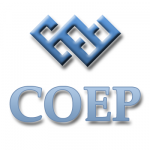 The WiderNet Project, a Chapel Hill, N.C.-based nonprofit dedicated to reducing the digital divide worldwide, is expanding its Corrections Off-line Education Platform (COEP), so that more inmates will be able to access the type of information found online.
The WiderNet Project, a Chapel Hill, N.C.-based nonprofit dedicated to reducing the digital divide worldwide, is expanding its Corrections Off-line Education Platform (COEP), so that more inmates will be able to access the type of information found online.
The organization‘s eGranary Digital Library, or The Internet in a Box, has allowed schools and organizations with no internet access to search for information from more than 40 million digital resources, including websites, books, educational software programs and computer software applications. Topics deal with everything from building wells to the Purdue OWL (Online Writing Lab), which features exercises designed to teach writing.
The eGranary Digital Library mirrors the Internet and allows searches, but users cannot go online, since the sites are not live but saved on the server.
WiderNet is using eGranary to develop the COEP offline server, that is beginning to be used in jails and prisons, giving inmates wider access to educational opportunities and improving their skills and knowledge.
“This platform allows correctional facilities to build an educational platform offline,” says Heather Erwin, the organization’s prison project coordinator. “From the 40 million resources we have in eGranary, we took those that crossed over well and used them for COEP.”
COEP will concentrate on resources related to re-entry, including GED, vocational training, and computer and job search readiness skills.
COEP current and future locations
WiderNet’s prison project was launched in 2006 at the Iowa Medical Classification Center, where all offenders in Iowa go before being sent on to one of the state’s 11 correctional facilities. The organization delivered a server to the facility, where it was installed in the library and used for online research in an offline manner.
From IMCC, the prison project expanded to other facilities in Iowa and is now at a prison in Washington State. The WiderNet Project has also contracted with California to go into the Corcoran Medical Center and has been talking to Los Angeles County and officials in the San Francisco Bay Area to expand to those places as well. It is also in discussion with the Maryland Department of Juvenile Services and the Windham School District, which operates schools on 90 Texas Department of Criminal Justice sites.
In addition, the nonprofit signed a contract with the Correctional Educations Association to provide content for tablets that will be used in a pilot project by Ashland University, which is located in Ashland, Ohio and offers courses in correctional facilities around the state.
Funding for the program
According to Erwin, facilities that have been interested in implementing COEP usually have access to Perkins grant money. The Carl D. Perkins Vocational and Technical Education Act provides more than $1.1 billion each year to states for improving secondary and post-secondary career and technical education programs.
The WiderNet Project is looking for partners and sites to help spread COEP to more correctional facilities around the nation. Contact them by calling 919-240-4622 or by email at info@widernet.org.
The organization is also planning to include the Jails to Jobs website in COEP. Our website has extensive information to help those in reentry learn how to conduct an effective job search and readjust to their new life. We support anything that helps to empower and educate, reduce recidivism and improve public safety, and feel that COEP is a very worthy effort.


